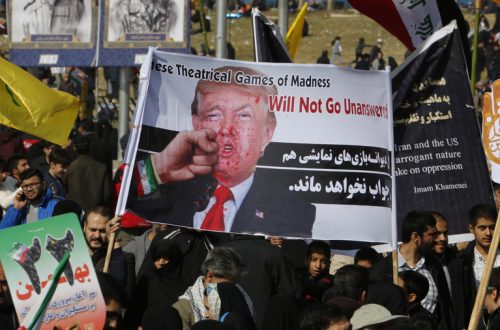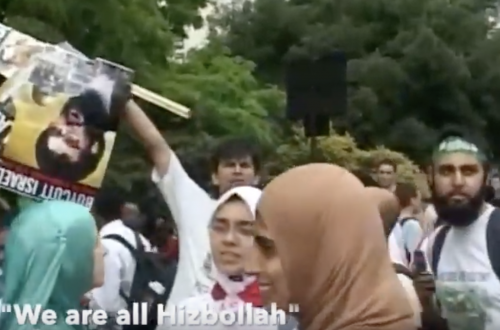This is a cross post by David Patrikarakos, and was first published on CiF
Two impulses drive Iran’s nuclear programme. Both are rooted in history. Speak to an Iranian and he’ll tell you about Iran’s 7,000-year history, its imperial glory and its contribution to civilisation. But he will also tell you about the 1953 CIA coup overthrowing Mossadegh, the behaviour of the Anglo-Persian oil company (now BP); and about repeated western meddling in his country.
Pride and grievance – the left and right lobes of the Iranian brain – are constantly warring, but it is recent history – the suffering not the glory – that has left its mark. Never again will foreigners dictate to Iran; never again will it be weak. In Iranian eyes it has been badly treated by a parvenu west for too long, and for many in the Islamic republic, its nuclear programme is the banner of its resurgence.
France has said that the UN no longer has any reason to hold off further sanctions on Iran over its nuclear programme. The US secretary of defence, Robert Gates, also warned that Iran faced “significant new sanctions” if it refused to change course on uranium enrichment. But this only highlights the lack of options facing the international community, and its lack of understanding about Iranian motivations.
Until the first round of UN sanctions in December 2006, Iran had pursued a dual diplomatic track to escape international censure. The first track sought the support of the non-aligned movement, whose members from the developing world largely share its views regarding the unfairness of the Non-Proliferation Treaty and the west’s reluctance to share nuclear technology – known as “technological apartheid”. The second track relied on the veto power of China and Russia in the UN security council. China is the second largest exporter to Iran. Russia is also a vital trading partner and enjoys close co-operation with Iran on its nuclear programme, centring on the Bushehr reactor project – a relationship deepened by a mutual interest in limiting US influence in central Asia. The strategy worked pretty well for close to five years. But the Iranian decision to restart nuclear activities in January 2006, after almost two years of suspension following the 2003 Tehran agreement, finally saw the nuclear file sent to New York. Three rounds of security council sanctions followed.
These were tepid at best. The China and Russia connection worked – and the two countries worked hard to mitigate the international response. The transfer of certain materials that could be used in nuclear processes was prohibited and a few Iranian banks were targeted, as were certain individuals said to have links with the Revolutionary Guards. Tangibly, the sanctions have had an effect. The Iranian economy is vulnerable. It is particularly reliant on foreign investment to develop its untapped oil fields. Systemic economic pressures and poor infrastructure have created high inflation and high unemployment. Sanctions intensify these problems. But they have not been sufficiently robust to force Iran into suspending enrichment.
For this they would have to attack Iran’s primary source of revenue, and the economic basis of the state: oil. But according to Clement Therme from the Geneva Graduate institute of International and Development Studies this is not going to happen:
Because the EU is Iran’s primary trading partner, targeting Iran’s oil and gas sector, while it would hurt Iran, would also significantly hurt the economies of the EU. It would be counterproductive for them to do it.
A French official recently told me that while concern is mounting at the Quai d’Orsay, and sanctions on refined oil products and even on investment in Iranian oil and gas sectors are all being considered, the feeling is that oil contracts already signed should be preserved, and all efforts maintained to keep Iranian core oil industries going. In a post-Iraq world, sanctions are the international community’s most feasibly robust tool. But it has consistently lacked the political will to pursue them adequately. Despite the rhetoric, self-interest, it seems, still rules.
But there is a further problem: sanctions occupy a peculiar mental space in the Iranian psyche. Despite the increase in international political pressure following the June 2009 presidential elections, Iran is standing firmer than ever. The diplomatic line now coming from Tehran is that it will not alter its progress – at any price. More than this, many in the regime believe that by continuing enrichment the Islamic republic shows it can withstand adversity. Its achievements are therefore all the more important, and worth defending.
Professor Ali Ansari of St Andrews University outlines the problem:
The west is in a difficult position. The sanctions do have an effect on Iran. But as soon as this is said publicly – which is necessary to keep the hardliners who want to bomb Iran at bay – it just makes the Iranians determined to show them that sanctions are not working.
Iranian pride, now invested so heavily in its display of technological achievement – will not bow to “imperialist pressure”. Once again the world is trying to “cheat” Iran – this time out of its legitimate right to nuclear technology. It will not succeed.
Without sufficient strength, a further round of sanctions will be fruitless. Military attack and its attendant political and possibly military cost is a frightening prospect. The latest “tough” pronouncements from the international community sound very much like the earliest. Imagination and understanding have been lacking throughout the nuclear impasse, but they are needed now more than ever.


